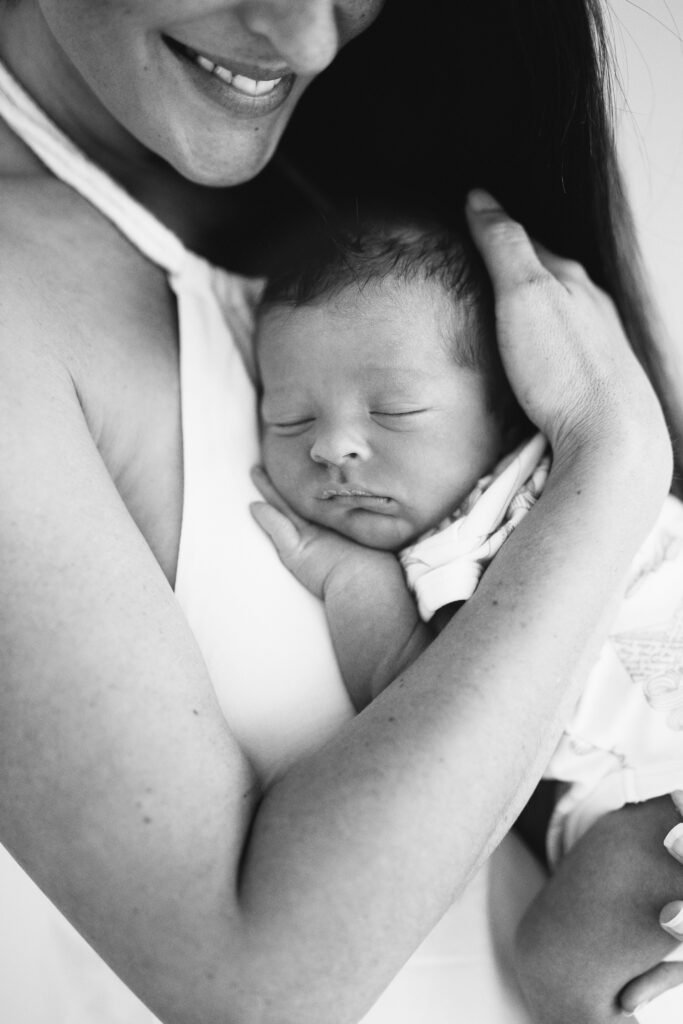Ever wondered whether it’s better to hold off on diving into the world of baby sleep until your little one hits the 4 or 6-month mark? Let’s have a chat about it.
Understanding the difference between gently guiding your baby into sleep and traditional sleep training is key.
In those first few days of getting to know your bundle of joy, both you and your baby are embarking on an incredible journey of discovery. You’re figuring out this whole parenting gig together, finding your groove, while your baby is soaking in every little moment—bonding through cuddles, learning the ropes, and experiencing the wonders of the world.

Did you know that babies are like little sponges in those early months? They absorb more during this time than at any other stage of their lives. Each day is packed with learning, from recognising patterns and behaviours to forming connections and associations. By the time they reach 4-6 months, they’ve already started forming strong links with routines around feeding, sleeping, and daily activities. If these routines are a bit fuzzy or negatively affect sleep, you might start thinking about sleep training to shake things up.
But imagine if you could start building positive associations around sleep and daily routines right from the get-go. By following just five simple steps early on, both you and your baby can feel more confident, consistent, and connected. As your baby grows, these routines become second nature, and you become pros at reading each other’s cues.
Some days will flow smoothly, while others might throw a curveball your way. On those tough days, embrace the cozy moments in your PJs, treasure the snuggles, and remember that tomorrow is another chance to start fresh. Wind down with your bedtime routine, knowing that tomorrow holds new adventures.
Grow and learn together so you don’t have to untangle any messy sleep habits down the road.
By the time your little one hits three months, you’ll have settled into a rhythm. You’ll know their hunger cues and when they’re ready for a nap, creating a comforting flow to your day.
But then comes the big leap at four months, both in cognitive development and sleep patterns. Your baby starts to realize their own identity, and their sleep starts resembling that of adults more closely. This might bring about the infamous 4-month sleep regression—a time of restlessness, fussiness, and tricky settling, especially for babies with sleep associations.
That’s why fostering positive sleep associations early on is invaluable. Even if there are a few bumps in the night, with your loving guidance, your baby can navigate through them. Night feeds will gradually become less frequent, daytime naps more predictable, and sleep will start to consolidate.
As you journey through parenthood, my mission for the past 20 years has been to help parents feel confident in raising THEIR baby, allowing them to thrive during this precious time.
Don’t wait to start your sleep journey—equip yourself with the right tools and grow together.
Whether through my Nurtured Beginning Program or a consultation, I’m here to offer friendly guidance and support on this beautiful adventure.


